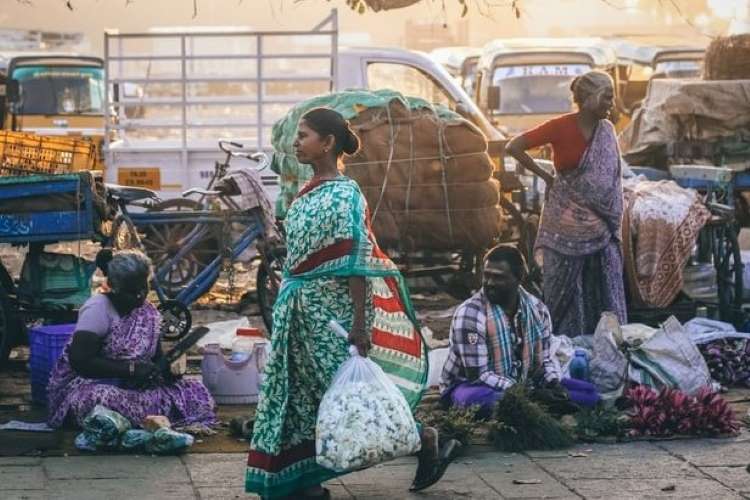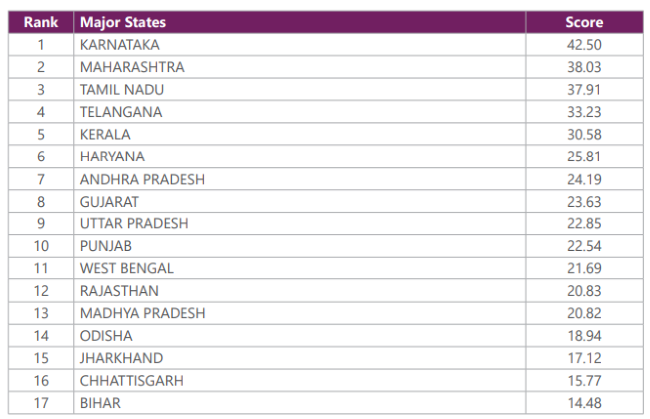
By KP Vipin Chandran
Tamil Nadu is among one of the most developed states in India. It is a state that has achieved high levels of economic and social development. The state enjoyed political stability and strong leadership through most of its history, seen by many commentators as the reason for its performance. The DMK-led Tamil Nadu government seems to continue the development approach of the earlier governments amid the Covid-19 pandemic. Chief minister MK Stalin and finance minister Palanivel Thiagarajan, an MBA graduate from Sloan School of Management at Massachusetts Institute of Technology (MIT), have hit the headlines recently for the right reasons.
The recent policy interventions by the state ministry to tackle the prevailing Covid-19 situation include direct cash transfer of Rs 4,000 to each ration card holder, free treatment for Covid-19 at private hospitals, and free travel for women in state-run buses illustrate its inclusive approach. The most fundamental question about development is that how it is defined. Over the course of time, policy makers have tried different approaches. The new Tamil Nadu government seems to consider development as one that gives access to the entire population to basic necessities such as food, clothing, housing, water supply and electricity.
READ I Social protection in Tamil Nadu: Covid-19 highlights need for universal coverage
Innovation index ranking

Growth with social progress
The Tamil Nadu government is giving special attention to achieving overall growth and social progress through better education, social security and healthcare facilities. Tamil Nadu is following the same human development path as Kerala, which has performed well on all human development parameters, through investment in quality education, strong public healthcare system from the primary health centre to medical colleges, and various social security schemes. The state has scored high on life expectancy, infant mortality rate, maternal mortality rate, literacy rate and quality of life.
In terms of economic growth, Tamil Nadu is trying to emulate East Asian tigers. Eight East Asian economies — Japan, South Korea, Taiwan, Hong Kong, Singapore, Thailand, Malaysia and Indonesia — grew twice as fast as any other region between 1965 to 1990, at the same time significantly reducing poverty and income inequality. They managed to convince the business community to hold on to their investment, while convincing their own people that short-term sacrifices would be rewarded in the future. Many of these countries have achieved business cooperation by creating consultative groups to increase accountability and stability.
These East Asian countries also initiated land reforms, labour co-operatives, and higher consideration was given to education. They built a broader development perspective by building a government responsible for preventing corruption and serving all sections of the society. While big states like Tamil Nadu and Karnataka followed the infrastructural growth of Maharashtra and Gujarat, the former also tried to replicate the growth pattern of East Asian countries.
READ I Covid-19 impact: Tamil Nadu economy in a spot of bother
Tamil Nadu government in news
The Tamil Nadu government constituted an Economic Advisory Council to the Chief Minister that includes Nobel laureate Esther Duflo, former RBI Governor Raghuram Rajan, former Chief Economic Advisor of the Government of India Arvind Subramanian, Development Economist Jean Dreze, and former Union finance secretary S Narayan. The prime responsibility of this Council is to draft policies to overcome the Covid-19 crisis, to address the fiscal health of the state, and to accelerate the economy through welfare schemes.
The Tamil Nadu economy managed to combine a relatively high human development along with a degree of economic dynamism. As per the ministry of statistics and programme implementation (MOSPI) data, the per capita income of Tamil Nadu is Rs 1,93,750 for 2018-19. TN occupies a sixth position in per capita income nationally. There is a consistent increase in the income per capita of the state since the financial year 2012. Poverty in rural and urban Tamil Nadu has been declining steadily since 1994.
READ I Front-of-package labelling: Why India should opt for warning labels
Towards a South Indian Miracle
In the third edition of Sustainable Development Goals Index 2020-21 (SDG India Index) published by NITI Aayog, Tamil Nadu shares the second position with Himachal Pradesh. According to the India Innovation Index 2020 published by the NITI Aayog, Tamil Nadu occupies third position after Karnataka and Maharashtra. Tamil Nadu holds 12th position in the Ease of Doing Business ranking and 11th position in the Human Development Index (2019 data).
Tamil Nadu is one of the most advanced states in India and it is the second largest state economy in the country that accounts for 8.4% of India’s GDP. Tamil Nadu has a highly developed industrial ecosystem and has strong industries such as automobiles, auto components, textiles, leather products, light and heavy engineering, pumps and motors, and electronic software/ hardware. Many globally renowned companies have set up manufacturing facilities in Tamil Nadu. These include Hyundai, Ford, Peugeot, BMW, Daimler, Caterpillar, Ashok Leyland, TVS, Nokia, Renault, Nissan, Foxconn, Delta, DELL, Salcomp, CEAT, Michelin, MRF, Grundfos and L&T.
The MK Stalin government seems to recognise the fact that economic growth and human development are equally important for the growth of a society. The encouraging outcomes on economic growth and social progress have fueled optimism about Tamil Nadu’s economic prospects. The state’s economy has the potential to emulate the South Asian tigers and create a new path of development for South India.
Dr K P Vipin Chandran is a Faculty of Economics at Krishna Menon Memorial Government Women’s College Kannur, Kerala)
